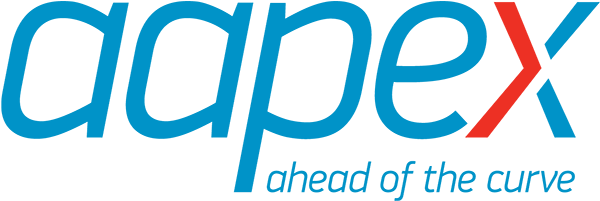New Inspection Guidelines for Natural Gas Vehicles
Monday, October 14, 2019

By Micheal Smyth, director of the National Alternative Fuels Training Consortium (NAFTC), a program of the Energy Institute at West Virginia University
Editor’s note: This blog post is the third in a series leading up to AAPEX 2019 in Las Vegas, and highlights alternative fuels training sessions scheduled to take place in Mobility Garage: Products and Training for Tomorrow.
“If you don’t have your health, you don’t have anything,” maintains Chuck Pagano, defensive coordinator with the Chicago Bears and former head coach of the Indianapolis Colts. Few would disagree with the coach’s assessment and, therefore, we recognize that work safety must be a top priority. With alternative fuels, safety takes on added significance because people are unfamiliar with the fuels and are, understandably, concerned.
For communities and fleets that have made the transition to natural gas vehicles (or for those considering this option), fuel system inspections are a vitally important task to assure the safe handling and maintenance of high-pressure natural gas storage systems. To address this topic, we are delighted to have William “Bill” McGlinchey — a long-standing expert on compressed natural gas (CNG) fuel system inspection — as a presenter in Mobility Garage.

Founded in 2002 by McGlinchey and two colleagues, AFV International provides various courses about natural gas and propane. Whether you are a fleet manager wondering about the advantages of these fuel sources, or a technician who maintains the vehicles, or an operator using them in your work, AFV International has training for you. They also work with first responders to understand the unique characteristics of natural gas and propane.
One of AFV International’s most popular offerings is their CNG Fuel System Inspection course, which covers the proper procedures to visually inspect CNG fuel systems including cylinder identification, installation, proper venting (de-fueling), disposal and documentation. Upon completion students have the information they need to take the CSA certification exam.
“As a former NAFTC employee, I’m happy to work with them again at AAPEX 2019,” McGlinchey says. “I plan to offer Mobility Garage attendees highlights from our typical day-and-a-half fuel system inspection course —in 45 minutes! We will review existing regulations about CNG fuel systems, discuss new guidelines, and learn ways that your business can remain compliant while reducing inspection costs.”

This session, New Inspection Guidelines for NGV Fleets, will also cover common questions related to CNG fuel systems, including:
- How safe are CNG systems?
- What are current regulations governing CNG inspections?
- Can I inspect and certify my fleet?
- Will outsourcing inspections reduce my liability?
- Where can I get additional information about CNG inspections?
McGlinchey’s presentation, slated for Nov. 7, 2019, at 10:30 a.m., will provide answers to these questions (and other CNG-related concerns you may have).
Mobility Garage at AAPEX 2019 will feature several highly regarded trainers providing information about important alternative fuel vehicle topics. Visit Mobility Garage for the full training schedule.
Between now and November, we will update this blog with more about these experts and the topics they will discuss as part of Mobility Garage. To attend, make sure you’re registered for AAPEX.
More information about the NAFTC may be found by visiting: www.naftc.wvu.edu.
